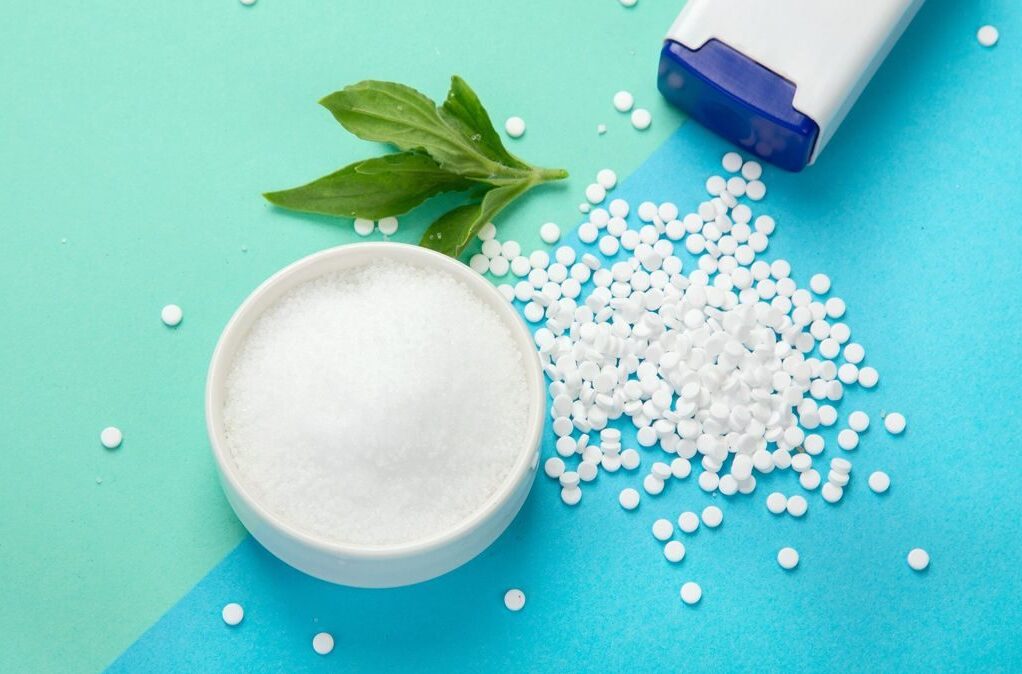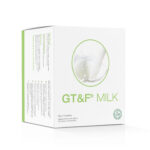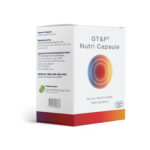Artificial Sweeteners can actually lead to diabetes?
Wait
20 Sep 2024 | Chin

With the rise of sugar-free products in the market, artificial sweeteners (AS) have become a go-to alternative for those looking to reduce sugar intake, especially for people with diabetes. From 2016 to 2020, the global market for sugar-free confectionery saw a 4% increase. But despite the absence of real sugar, these products retain their sweetness. How? Artificial sweeteners like aspartame, saccharin, and sucralose are the secret ingredients. But how safe are they, really? Can diabetics indulge in these “sugar-free” options without concern?
Types of Artificial Sweeteners and Usage
There are several types of artificial sweeteners approved for use today, including:
Aspartame
Aspartame is about 200 times sweeter than sugar and is widely used in diet sodas, chewing gum, and low-calorie desserts. It accounts for approximately 25% of the artificial sweetener market.
Saccharin
Saccharin is one of the oldest artificial sweeteners, about 300–400 times sweeter than sugar. It is used in beverages and some packaged foods. Due to its long term usage side effects, currently it holds only 15% of the artificial sweetener market.
Sucralose
Sucralose is 600 times sweeter than sugar and can withstand high temperatures, making it ideal for baking. It dominates with 35% market share in the artificial sweetener industry.
Stevia
Stevia is a natural, plant-based sweetener that is around 200–300 times sweeter than sugar. Its market share has grown to approximately 20% due to its natural appeal.
Acesulfame Potassium (Ace-K)
Ace-K is around 200 times sweeter than sugar and is often used in combination with other sweeteners to enhance flavor in soft drinks and desserts.
Neotame
Neotame is up to 7,000–13,000 times sweeter than sugar, used in various processed foods but in smaller quantities due to its intense sweetness.
Health Risks Associated with Artificial Sweeteners
While artificial sweeteners are marketed as a safer option for diabetics and those looking to manage weight, they come with potential health risks. Research indicates that consuming artificial sweeteners frequently may not be as harmless as it seems.
- Alteration of Gut Microbiome
Frequent consumption of AS can change the composition of gut bacteria, leading to glucose intolerance, a condition that impairs the body’s ability to process sugar properly (Suez et al., 2022). Sucralose, though generally safe, has newer concerns about its effects on gut health and safety when heated - Increased Risk of Type 2 Diabetes (T2D)
A 2017 study found that frequent users of artificial sweeteners had a 37% higher risk of developing Type 2 Diabetes compared to those who rarely or never consumed them (Fagherazzi et al., 2017). Some artificial sweeteners, may impair the body’s ability to produce insulin or affect how insulin interacts with cells. - Metabolic Syndrome
Regular consumption of artificial sweeteners has been linked to metabolic syndrome, a cluster of conditions that increase the risk of heart disease, stroke, and diabetes. Aspartame is metabolized into methanol, phenylalanine, and aspartic acid, raising concerns for people with the genetic disorder phenylketonuria (PKU) - Weight Gain
Despite being calorie-free, artificial sweeteners may paradoxically contribute to weight gain by altering how the brain perceives sweetness and hunger cues. - Potential Cancer Risk
Though controversial, some older studies linked Saccharin to bladder cancer in rats, leading to debates about its safety for human consumption.
Are Artificial Sweeteners Safe for Diabetics?
For diabetics, managing blood sugar is crucial. Artificial sweeteners are attractive because they don’t immediately raise blood glucose levels. However, the long-term health risks and potential for glucose intolerance, as seen in studies, make it clear that diabetics should use these substitutes cautiously.
While artificial sweeteners can be part of a balanced diet, relying heavily on them as a daily sugar alternative may not be the healthiest choice. Moderation is key.
Solutions: How to Safely Sweeten Your Diet
If you’re looking to reduce sugar intake without relying too much on artificial sweeteners, here are some alternatives:
- Use Natural Sweeteners
Opt for natural alternatives like honey, maple syrup, or agave. While they contain sugar, they also come with additional nutrients and are less processed than artificial sweeteners. - Choose Whole Fruits
Fruits are naturally sweet and offer fiber, vitamins, and antioxidants. Try sweetening your meals or snacks with berries, apples, or bananas instead of processed sugars. - Limit Packaged “Sugar-Free” Foods
Focus on whole foods and avoid over-consuming sugar-free packaged goods that often rely on artificial sweeteners. - Monitor Blood Sugar Levels
For diabetics, it’s essential to regularly check your blood sugar levels when using artificial sweeteners to understand how your body reacts to them.
Conclusion
While artificial sweeteners provide a temporary sugar-free solution, they come with their own set of potential health risks, especially for frequent users. Diabetics and health-conscious individuals need to weigh the short-term benefits against the long-term risks. Opting for natural sweeteners and whole foods may be a safer, more nutritious choice for managing sugar intake.
Our supplement ranges:
GT&F Series
With GTF chromium, an essential nutrient for sugar metabolism, and lactoferrin for better chromium absorption in body, is clinically proven improve blood sugar level by lowering 22% fasting glucose after 16 weeks and utilize glucose into energy effectively. Enhances insulin sensitivity and potentiates insulin signaling.
GTF Worldwide Sdn Bhd
- No. 20-2, Plaza Danau 2, Jalan 5/109F, Taman Danau Desa, 58100 Taman Desa, Kuala Lumpur, Malaysia.
- (03) 7982 9881
- (012) 483 5523
- info@gtf.com.my


